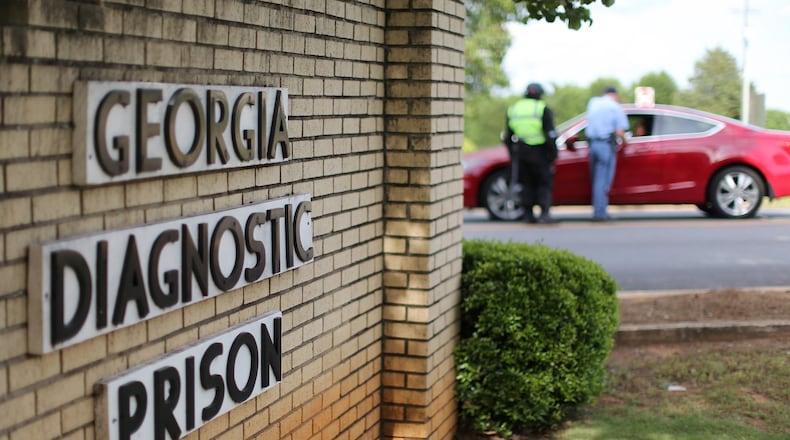A number of inmates are being released from prison immediately after spending years in Georgia’s harsh solitary confinement unit, a practice that puts the public at risk, a letter sent this week to the state Department of Corrections said.
The letter, signed by lawyers for the Southern Center for Human Rights, said keeping inmates in solitary right up until their time is up should be avoided whenever possible.
The letter draws from findings made during ongoing litigation against the state prison system in a case brought by an inmate now being represented by Southern Center lawyers. The suit calls the 192-bed "special management unit" an unconstitutional "torture technique." A California professor hired by the Southern Center to assess the situation called the unit the "harshest and most draconian" of any in the country.
Credit: Craig Haney
Credit: Craig Haney
In that lawsuit, initially filed by inmate Timothy Gumm, Southern Center lawyers are asking a federal judge in Macon to allow it to become a class-action lawsuit on behalf of all inmates inside the solitary unit. The lawyers are also asking the judge to issue a preliminary injunction that requires the prison system to take immediate steps to fix the problems.
A corrections spokeswoman said the agency could not comment because of the ongoing litigation.
But in a recent court filing, state attorneys said they have been working tirelessly with Southern Center lawyers to arrive at a settlement. So far, however, no agreement has been reached.
The letter sent this week to Corrections Commissioner Greg Dozier and other corrections officials said social deprivation causes inmates to behave in pathological ways and makes it all but impossible to adjust to the free world. Such behavior threatens the communities to which the inmates return and brings significantly higher-than-average rates of recidivism, the letter said.
Moreover, there is a growing national consensus that releasing prisoners directly from solitary confinement to the streets is bad public policy, the lawyers wrote.
The Colorado prison system, for example, eliminated the practice altogether after its former commissioner was assassinated in 2013 by a man who was released directly into the community after serving seven years in solitary.
In Georgia, about 20 percent of the inmates held in solitary confinement have been kept there for six or more years. Citing this, Southern Center lawyers said inmates should be allowed to step down to a lower level of custody before their release to help them re-acclimate with other people before they reenter society.
Separately, the Southern Center lawyers said a large number of prisoners being held in solitary are seriously mentally ill and, in some cases, “actively psychotic or suicidal.” These inmates suffer a further psychological decline because of their isolation, making it extremely difficult for them to ever get out of solitary, the letter said.
The lawyers recounted their visits with some of the mentally ill inmates, noting one was found in his cell covered in filth and had reportedly gone two weeks without a shower.
The letter asks corrections administrators to “reassess and take meaningful steps to limit the use of solitary confinement in Georgia’s prisons.”
In the state’s recent legal filing, attorneys said the prison system is now taking steps address the concerns laid out in the litigation.
This has been happening while the Department of Corrections continues “to manage a discrete prison population that is made up of mostly dangerous and violent offenders.”
On July 30, it began performing mental health evaluations on all inmates inside the isolation unit. It has implemented a new program that will allow inmates in the unit to return to the general population “with greater success.”
The department recently contracted for the construction of 80 tables in which isolation inmates can sit, in restraints, outside their cells for four hours a day. Those are expected to be installed by Sept. 1. And inmates have been provided tablets that allow them to exchange emails with family members and download books, music and games, the state’s filing said.
Sarah Geraghty, a Southern Center lawyer, said she hopes these developments will result in meaningful improvements. But she’s already been told by inmates they are having trouble with the tablets.
“Our clients are saying they are useless because they don’t have power,” Geraghty said.
About the Author
Keep Reading
The Latest
Featured






